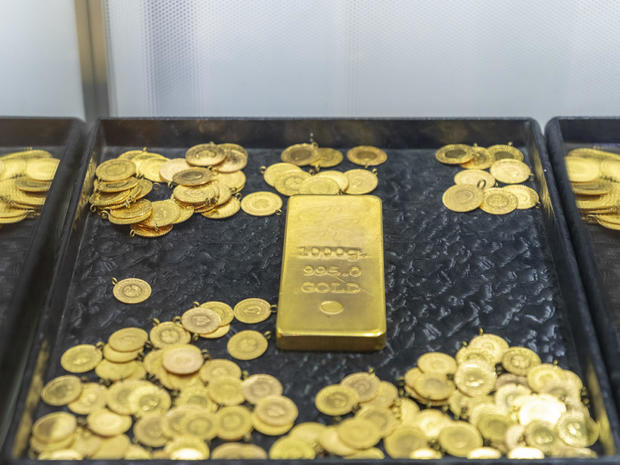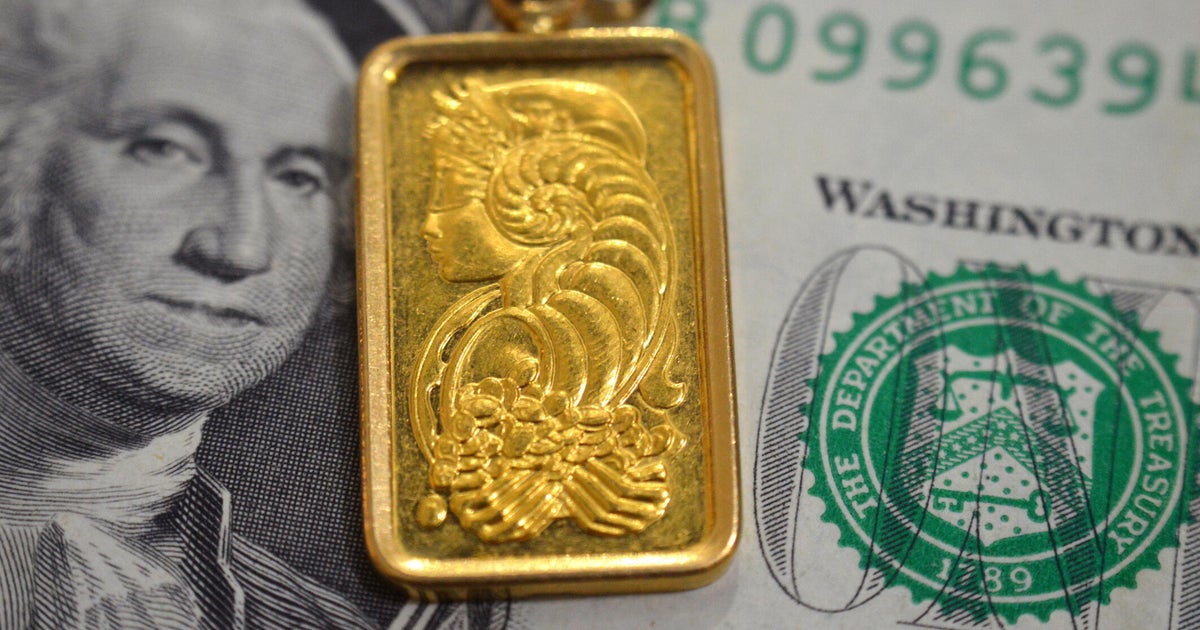Is gold cheaper when you buy more of it?
Gold has been a prized investment asset throughout history. And today, it's an asset that's known for adding safety and stability to portfolios — due, in large part, to how gold protects against inflation and uncertain economic and market conditions.
As an investor, it's important to try and purchase your assets at the lowest price possible. After all, the lower the price is when you buy, the more you stand to profit when you sell it.
But what does that mean for gold? You may have heard it's not wise to try to time the market, so is there any other way to pay less for your gold investments? Well, the amount of gold you buy could make a difference in the price you pay.
Compare your top gold investing options now.
Is gold cheaper when you buy more of it?
Gold is typically cheaper by the ounce when you buy more of it. Gold dealers usually set their prices based on the current market price, also known as the spot price, along with a dealer markup. And, since dealers generally want you to purchase higher quantities of gold, they'll often reduce their per-ounce dealer fees when you buy more of the precious metal.
For example, the cheapest 1-ounce gold bar at JM Bullion currently costs $2,118.64. However, if you purchase between 10 and 24 of these 1-ounce gold bars, you'll pay $2,113.64 per ounce. If you purchase 25 or more, the price drops to $2,108.64 per ounce.
So, if you purchase 25 1-ounce gold bars from JM Bullion, you would save $10 per ounce, for a total savings of $250. But the savings are likely to differ from one dealer to the next, so be sure to compare your options.
Buy gold online to diversify your portfolio today.
Why you should add gold to your portfolio
There are several reasons to consider adding gold to your investment portfolio, including:
Protection against uncertainty and inflation
"Gold is often considered to be a solid choice in times of financial and economic uncertainty due to the physical underlying asset that it's tied to — itself," says John Jones, investment advisor representative at Heritage Financial. "It is difficult to become worthless and subject to inflation whenever there is a physical tangible asset backing itself."
Peter J. Klein, CFA, CRPS, CAP, CSRIC, CIO and founder at ALINE Wealth, says that's important considering today's inflationary pressures.
"Gold is often seen as a hedge against inflation," says Klein. "As inflation devalues currency, gold retains its value, making it a potential safeguard against inflationary pressures, which are on the rise."
Gold is a dollar alternative
"It is important to understand that gold is a dollar alternative," says Jones. "We are almost in the realm between physical assets and forex whenever we consider gold. Interestingly enough, gold has always been used as a dollar alternative in uncertain economic times."
Gold is a compelling diversification tool
"Gold can very interestingly be paired with other investments such as the DOW and provides portfolio divergence amongst investing. The GLD has a 0.06 correlation for the DOW, which can make it attractive as a portfolio differentiator for some and level out the volatility," says Jones.
Klein agrees.
"Gold is an alternative asset class that moves differently from traditional stocks and bonds," Klein says. "This lack of correlation can offer portfolio diversification, smoothing out investment returns."
How much of your portfolio should you allocate to gold?
Many experts suggest that investors allocate up to 10% of their assets to gold. Still, the amount of the precious metal that fits well in your portfolio is unique to you. Consider the correlation between gold and the other assets in your portfolio and how the precious metal might help or hinder your ability to achieve your investment goals.
Also, keep in mind that gold is a safe-haven investment. So, if you're a risk-averse investor, it could make sense to allocate more of your portfolio to the precious metal than an investor with a hefty appetite for risk.
The bottom line
Gold is typically cheaper when you buy more of it because high quantities often lead to lower per-ounce dealer fees. However, it's important to also consider your portfolio and your investment goals as you determine how much gold to buy.
After all, you'll want to carefully balance your allocation to safe havens like gold with your allocation to potentially higher-return assets like stocks. Nonetheless, gold has a place in many people's portfolios. So, if you haven't purchased any yet, this may be a good time to do so.




